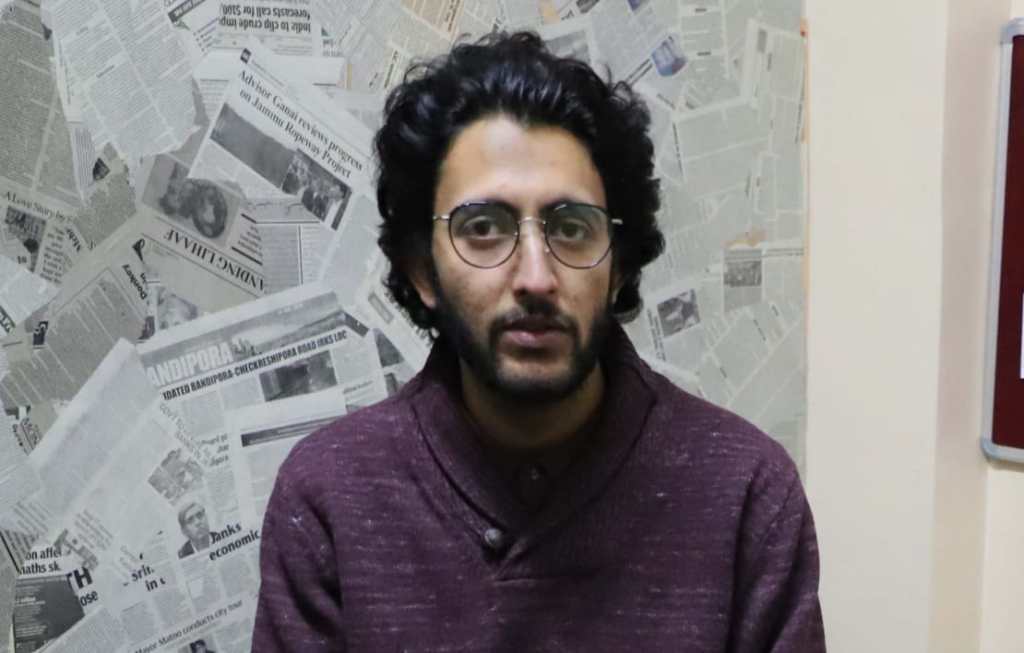SRINAGAR: In a significant legal development, the Jammu and Kashmir High Court granted bail to journalist Fahad Shah, the editor of the now-defunct news portal The Kashmir Walla. The court’s decision, rendered on November 17, came with scathing criticism for the Jammu and Kashmir government’s decision to resurrect a 2011 case against Shah even after he had been granted bail twice by different courts.

Shah, who had been in detention since February 2022, was accused by the government of glorifying militancy through an article titled The shackles of slavery will break, published on his portal in 2011. The court’s 25-page bail order underscored the lack of substantial evidence connecting Shah’s writings to acts of militancy over the past 11 years. “From then till date, no evidence has been brought on record that the offending article was responsible in provoking persons to take to militancy. Not a single witness says this,” the order reads.
The judges expressed concern over the government’s actions, stating that the case against Shah was “dug out” after he had already been granted bail twice by separate courts. The court highlighted the shifting of Shah’s custody, preventive detention under the Jammu and Kashmir Public Safety Act, and the subsequent revival of the case by the government.
“As per the averments in the appeal, the appellant was arrested by Pulwama police station in connection with FIR No. 19/2022, in which he was granted bail by the TADA/POTA Court at Srinagar. However, the police, without releasing the appellant, shifted his custody to Shopian police station in FIR No. 6/2021, in which too the appellant was granted bail by the Court of the Munsiff, Shopian,” reads the judgment by the division bench of the high court bench comprising Justices Anil Sreedharan and Mohan Lal. “However, the appellant was still not released, and his custody was shifted to Safa Kadal police station in another case registered at that police station.
It is also averred that before the Court of competent jurisdiction at Srinagar could decide his bail application, the appellant was taken into preventive detention under the provisions of the Jammu and Kashmir Public Safety Act, 1978. It was in this backdrop that the current case against the appellant was dug out by the Respondent with the registration of the aforementioned FIR.”
The court emphasised that the charges against Shah were essentially related to his “right to freedom of speech and expression,” adding that the government’s accusations lacked substantial evidence.
While the court quashed serious charges like terror conspiracy and waging war against the country, it upheld Shah’s continued trial under Section 13 of the Unlawful Activities Prevention Act (UAPA) and certain sections of the Foreign Contribution (Regulation) Act. The court rejected the government’s argument that the article amounted to a “terrorist act” causing damage to India’s “incorporeal property,” stating that such a proposition would violate the fundamental right to freedom of speech and expression enshrined in the Constitution.
“If this argument was accepted, it would turn criminal law on its head. It would mean any criticism of the central government can be described as a terrorist act because the honour of India is its incorporeal property. Such a proposition would collide headlong with the fundamental right to freedom,” the order reads.
In a noteworthy legal observation, the court asserted that the investigating agency under the UAPA has the authority to arrest but must justify the arrest on the grounds of a “clear and present danger” posed by the accused to society. The court held that the mere existence of prima facie evidence is insufficient without a valid justification for arrest, and a failure to provide such justification would violate the accused’s constitutional rights.
While the court granted bail to Shah, it also maintained charges under Section 13 of the UAPA and certain sections of the Foreign Contribution (Regulation) Act, signaling that there is sufficient material for a prima facie case. The judgment is expected to have wider implications in the ongoing legal discourse surrounding freedom of speech, expression, and the use of anti-terrorism laws in the region.
Shah was arrested on February 4, 2022, by the Pulwama Police for posting allegedly anti-national content on social media and booked under the Unlawful Activities (Prevention) Act. After 22 days, he was granted bail by a National Investigation Agency court.
Hours later, Shah was arrested on February 26, by the Shopian Police in another case related to provocation of riots. On March 5, 2022, he got bail but was rearrested in another case. The latter case charged under various IPC sections for rioting, attempt to murder, abetment, printing or engraving defamatory matter and public mischief. On March 2023, he was charged under the UAPA again after the State Investigation Agency filed a charge-sheet against him and a scholar who wrote the article 11 years ago.















